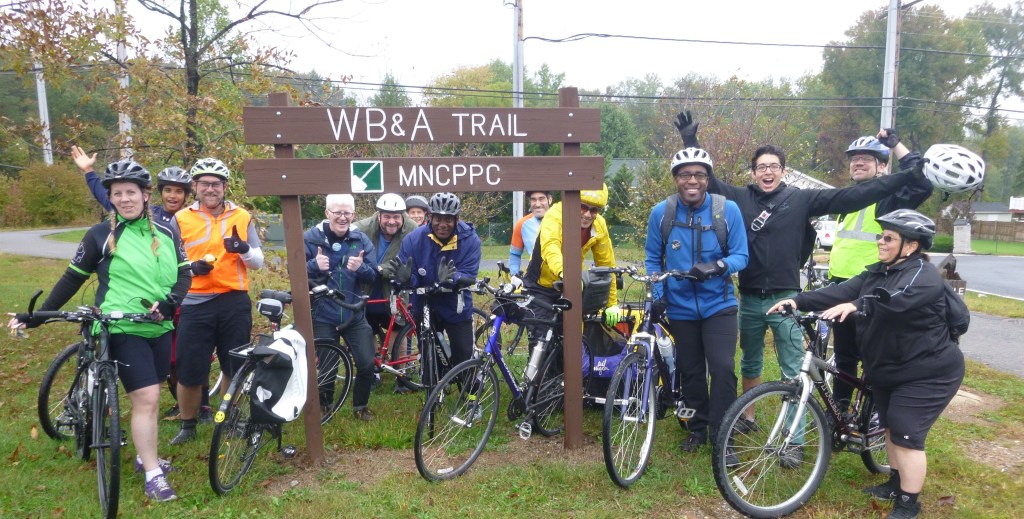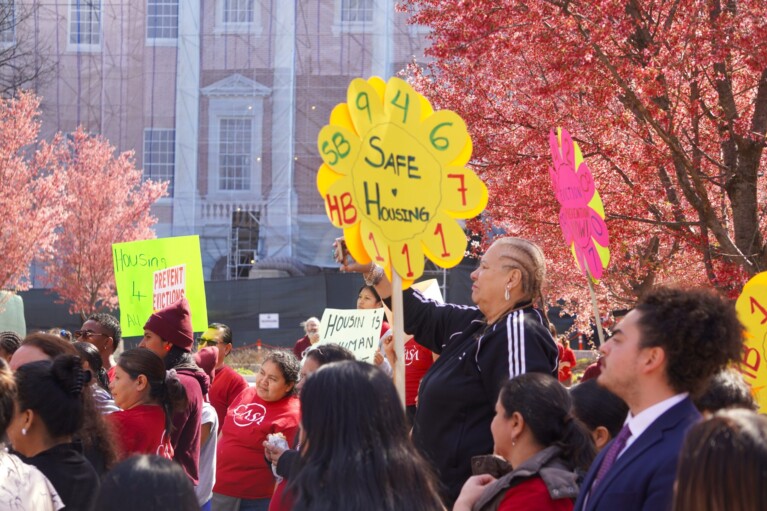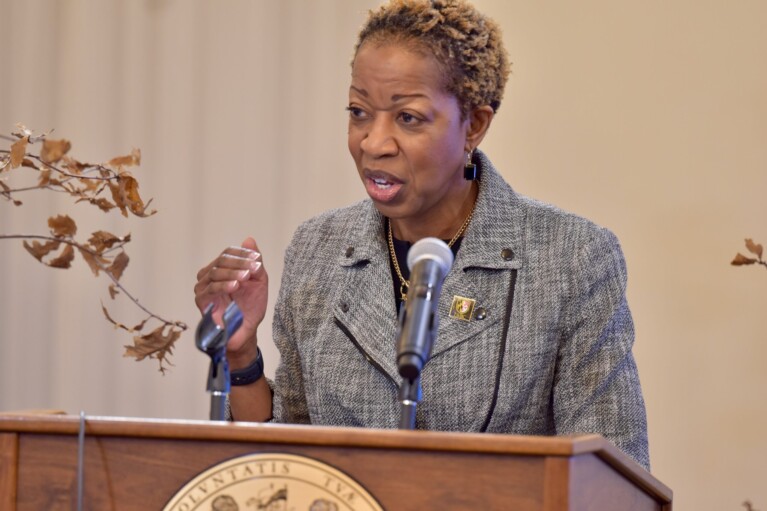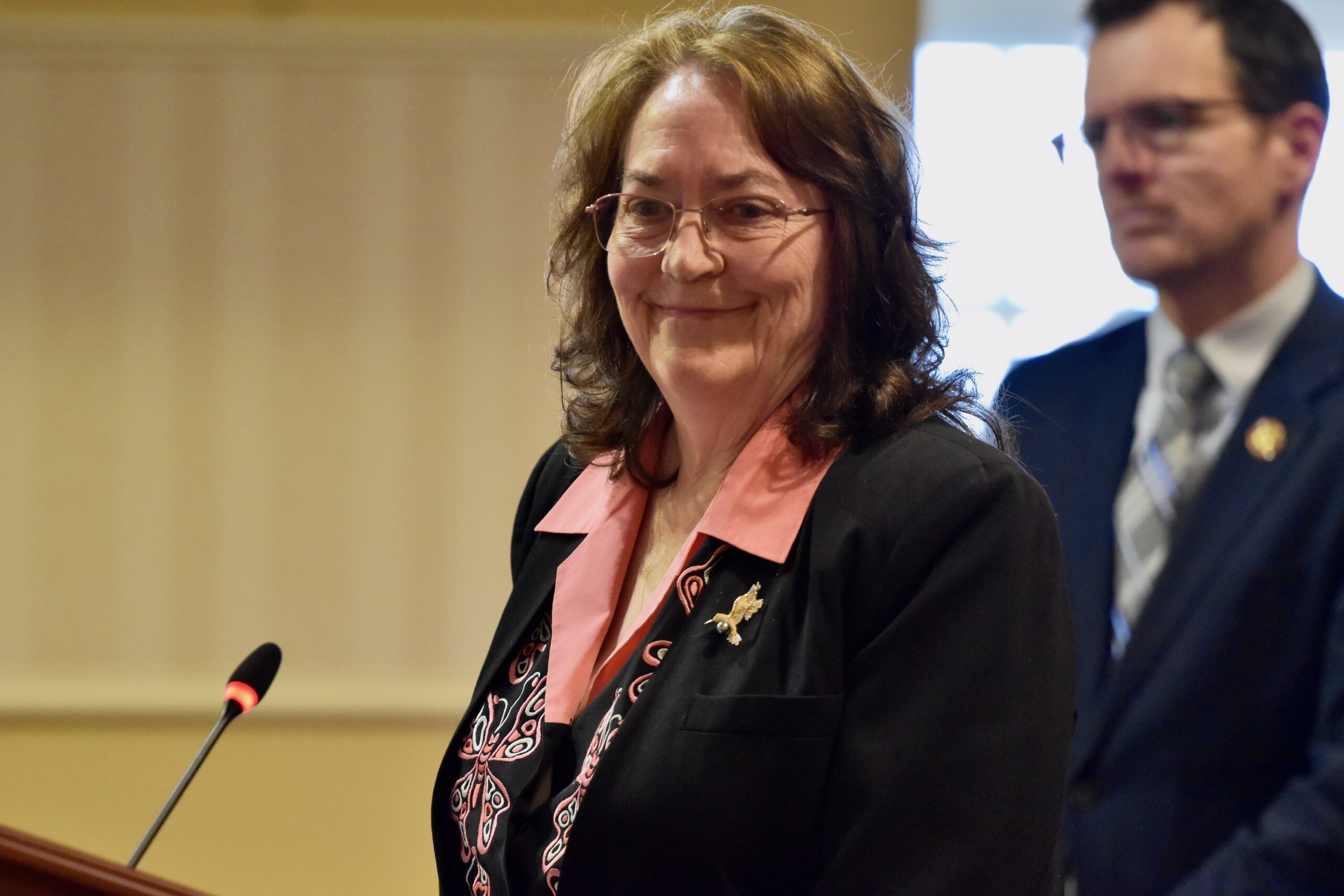Bicyclists Press Lawmakers for Share of the Road and Share of the Pie

When the House of Delegates votes on a traffic safety bill later this week that would boost penalties for motorists involved in crashes with “vulnerable” road users, it’ll mark welcome progress for Maryland bicyclists – who had their annual lobbying day in Annapolis Tuesday.
The bill, sponsored by Del. Stephen W. Lafferty (D-Baltimore County), passed unanimously in the House Environment and Transportation Committee last week and is scheduled for preliminary debate on the House floor Wednesday. It would prohibit a motorist from causing the serious physical injury or death of a “vulnerable individual” – including a pedestrian, an emergency responder, an individual riding an animal, an individual in a wheelchair, a bicyclist, a motorcyclist or an operator of a farm vehicle – and sets penalties for the violations.
“People are getting used to seeing cyclists and are coming around to the idea that there ought to be laws to protect us,” said Joshua Feldmark, executive director of Bike Maryland, an advocacy organization.

Joshua Feldmark, executive director of Bike Maryland
Current Maryland law has a sizeable gap in punishment between a traffic ticket and gross negligence, advocates say, and often when a vulnerable road user is struck and injured by a motorist, the penalty may be as little as a traffic ticket. Potential penalties include higher fines, license suspension, community service and additional driver education.
According to the Maryland Department of Transportation, 111 pedestrian fatalities and 499 serious pedestrian injuries occurred on Maryland roads in 2017. Additionally, MDOT reported that 11 bicycle fatalities and 85 serious bicycle injuries occurred on Maryland roads in 2017.
Nine states – Connecticut, Delaware, Florida, Hawaii, Oregon, Utah, Vermont and Washington – currently have vulnerable road user laws. A comparable bill has been introduced in the state Senate by Sens. Susan Lee (D-Montgomery) and William C. Smith Jr. (D-Montgomery).
Lee and Smith are also co-sponsors of another top priority for cyclists, a “safe passing” bill that would allow motorists to cross a double-yellow line in order to safely pass a bicycle. Current state law requires that motorists give a cyclist three feet when passing – but that isn’t always possible on narrow roads.
Companion legislation in the House has been sponsored by Del. Andrew Cassilly (R-Harford). Both bills have received hearings but have not had committee votes yet.
The other top priority for the biking community is a measure, sponsored by Sen. James C. Rosapepe (D-Prince George’s) and Del. Brooke E. Lierman (D-Baltimore City) to boost funding for the state’s Bikeways program, which is the principal source of state funding to local governments for bicycle infrastructure.
The bill seeks allocations of $4.5 million in fiscal year 2021, $5.3 million in fiscal 2022, $6.1 million in fiscal 2023, $6.9 million in fiscal 2024, and $7.7 million in fiscal 2025. It will be up for a hearing in the Senate Budget and Taxation Committee on March 5 and a joint hearing of the House Appropriations and House Environment and Transportation committees on March 7.
Bike advocates are also monitoring half a dozen other traffic and pedestrian safety bills. And while they were in Annapolis Tuesday, the 120 cyclists were advocating for the East Coast Greenway, a network of biker and pedestrian paths that runs from Maine to Florida.
The states aren’t fully connected by protected trails – in Maryland, for example, the route is 171 miles long but there are only 62 miles of protected greenway trails. But more sections of the route are being protected every year.
On Tuesday, Daniel Paschall, Mid-Atlantic coordinator for East Coast Greenway, was on hand to meet with Maryland lawmakers and urge them to work to set aside more protected trails.
A longer term priority for Maryland cyclists is changing the state’s traffic insurance and damage laws from “contributory negligence” to “comparative negligence.”
Maryland is just one of four states – Alabama, North Carolina and Virginia are the others – with contributory negligence laws, meaning if an injured person is just 1 percent responsible for a crash, it will be difficult for that individual to collect damages. Other states have comparative negligence, meaning if an individual is less than 50 percent at fault for a crash, the odds of collecting damages increase.
“The system assumes that as a cyclist on the road, you contributed to the crash,” Feldmark said.
The proposed change, which is unlikely to come up in this General Assembly session, is vigorously opposed by the insurance industry.




 Creative Commons Attribution
Creative Commons Attribution